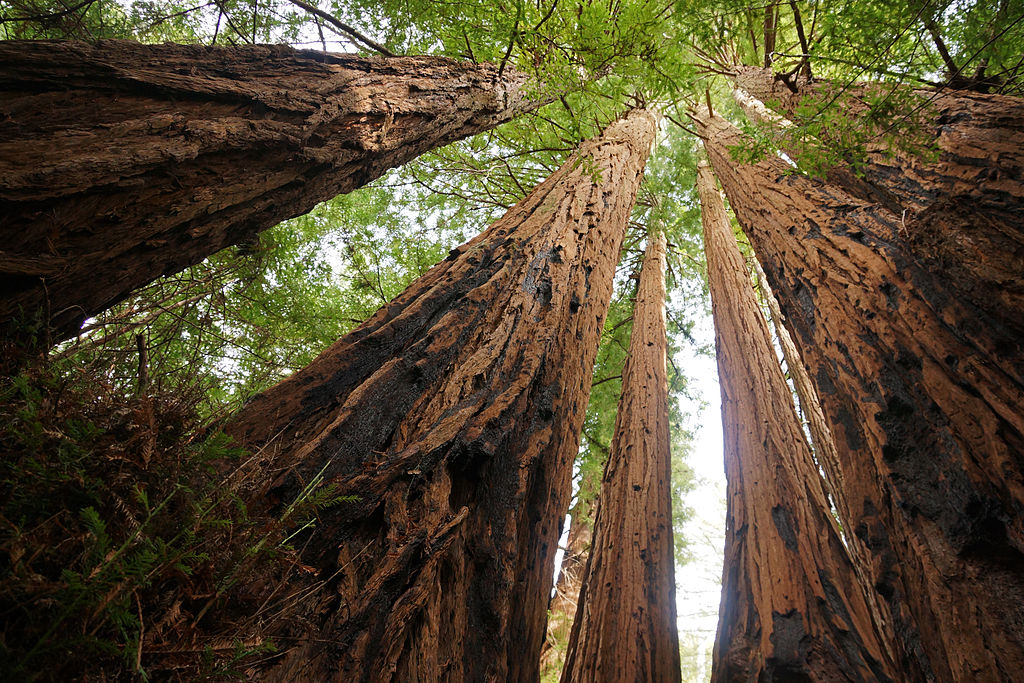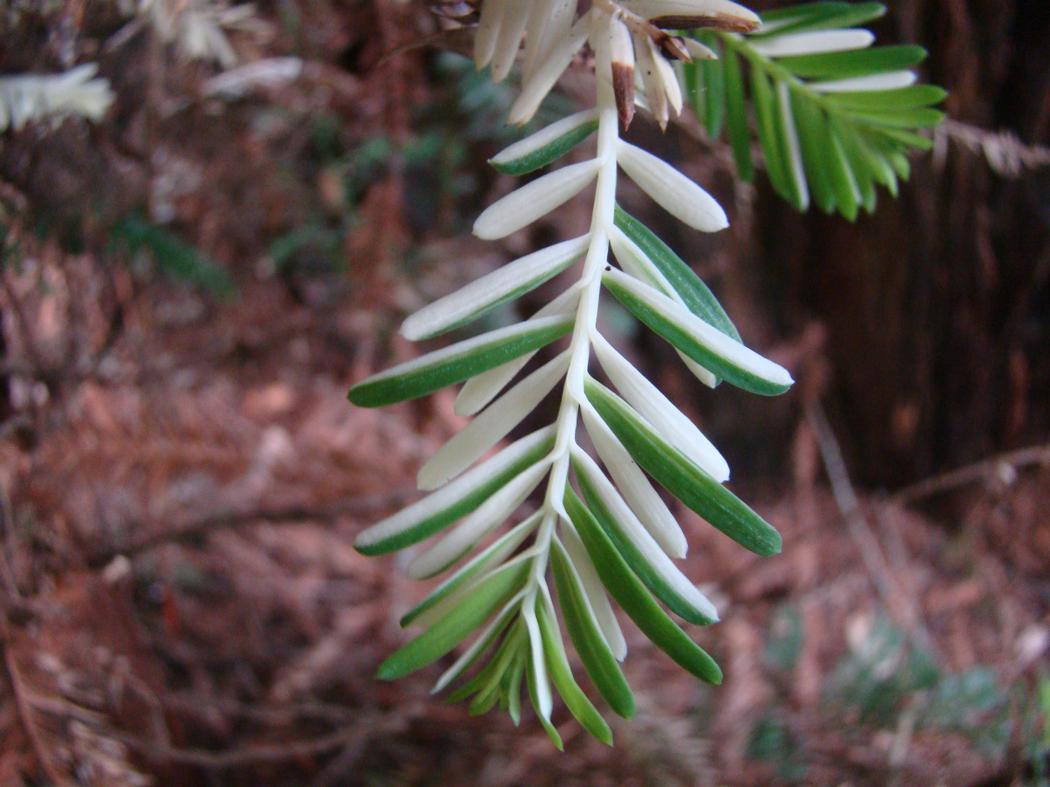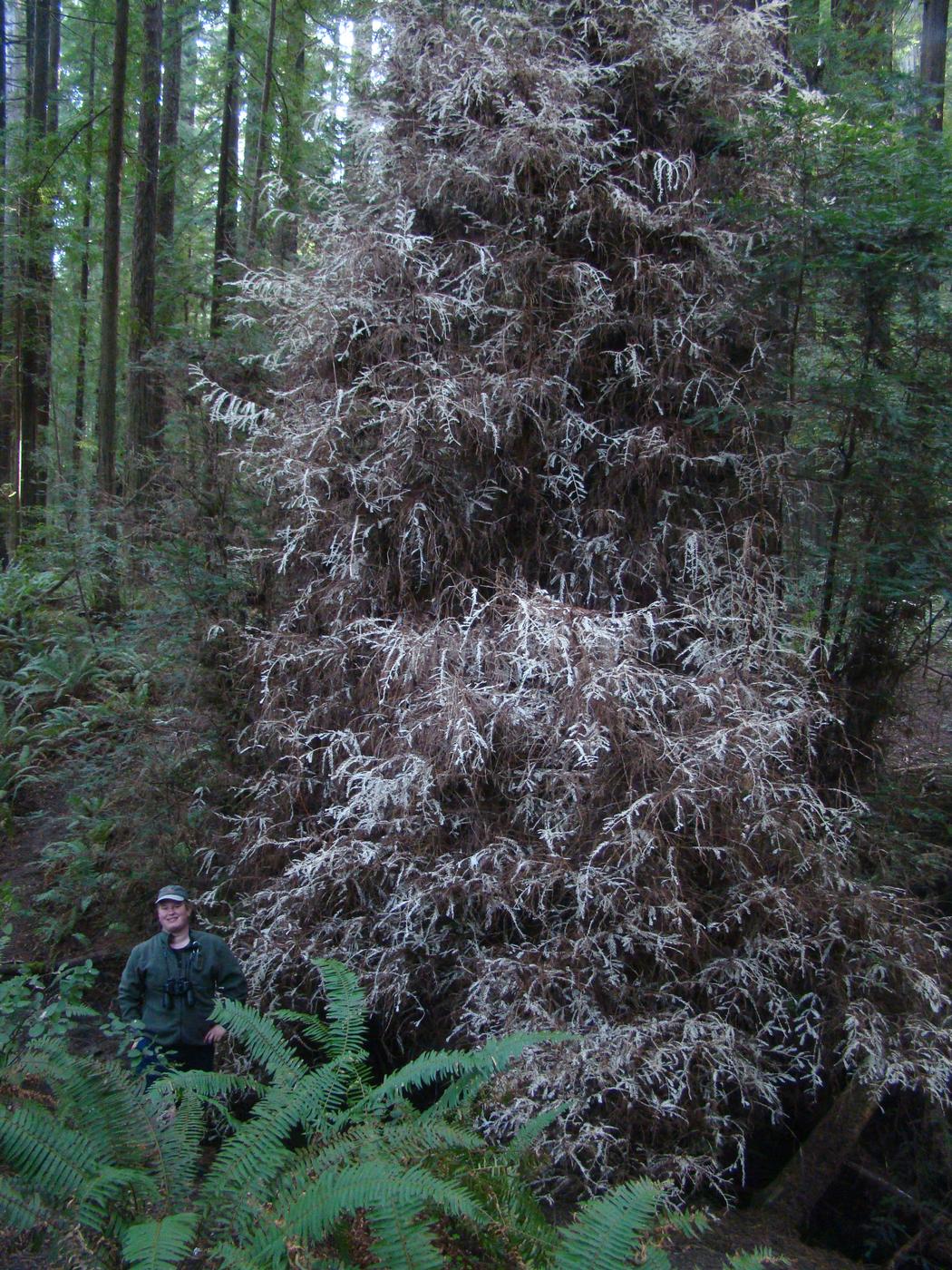
To say that California’s redwoods are amazing is an understatement. The majestic trees that have been around for millions of years have a life span of up to 2,000 years and can reach heights of over 300 feet, so tall that the tops are often invisible. Over the years, researchers have been able to discover a lot about these sturdy survivors that are resistant to pests, fire, and rot, grow three to ten feet a year, and capture more human-generated carbon dioxide (CO2) than any other tree on Earth.
However, the one mystery that has eluded them is the survival of a group of about 400 albino redwood trees that lack chlorophyll, the green pigment necessary for plants to photosynthesize. Since the trees are unable to produce glucose, scientists have always assumed that the “vampire trees” or “ghosts of the forest,” as they are often called, are parasites that live off healthier neighboring redwoods.

But Zane Moore, a graduate student at the University of California, Davis was not convinced this was true. Given that redwoods are incredibly efficient at shedding branches that are not making enough food, it seemed strange that they would tolerate a parasite year after year. To investigate the age-old mystery, the 22-year-old biologist, who has been intrigued by the albino redwoods since he first heard of them as a teenager, teamed up with Tom Stapleton, a certified arborist who has spent years researching the unusual trees.
The duo began by documenting the locations of the 441 known albino redwoods. When they plotted the data, the scientists noticed that all the specimens lay on the edge of the redwood forests, in areas where the soil and other environmental conditions are not conducive to the growth of normal redwoods.

A soil test revealed a high level of heavy metals such as nickel, copper, and cadmium. Clippings from the albino redwoods thriving in the area showed a similar concentration of the minerals. According to Moore, such high levels would be deadly in green redwood trees because the heavy metals poison the pathways making chlorophyll. However, since the albino redwoods do not make chlorophyll, there is nothing to disrupt.
This has led the young biologist to wonder if there is a symbiotic relationship between the green and albino trees. Moore hypothesizes that the healthy trees provide energy for the albinos in exchange for them absorbing the soil’s toxic metals. He explains, “If you think about it from a plant perspective, if the plant invests a little bit of its sugars into creating this white useless structure, and that useless structure actually worked and allows the plant to grow quicker, then the plant would want to do that again. And year after year grow that out, and that’s how you get these big albino branches.”

To test the theory, Moore is subjecting some green and white redwoods in the lab to high doses of nickel. The young biologist wants to see if green plants paired with albino partners stay healthier than those that do not have a companion to absorb the heavy metal. Even if the thesis proves incorrect, the 22-year-old believes his work will help scientists get a step closer to solving the mystery. The optimistic researcher says, "It's literally a matter of time before we have a good idea of what's happening [to the trees]."
Those hoping to catch a glimpse of these rare redwoods will have to seek them out given that their locations are a secret to ensure they do not get inundated by tourists. As Dave Kuty, a docent at the Henry Cowell Redwoods State Park succinctly puts it, “Trees can be loved to death because they can’t run away.”
Resources: Motherboard.vice.com,odditycentral.com, chimeraredwoods.com